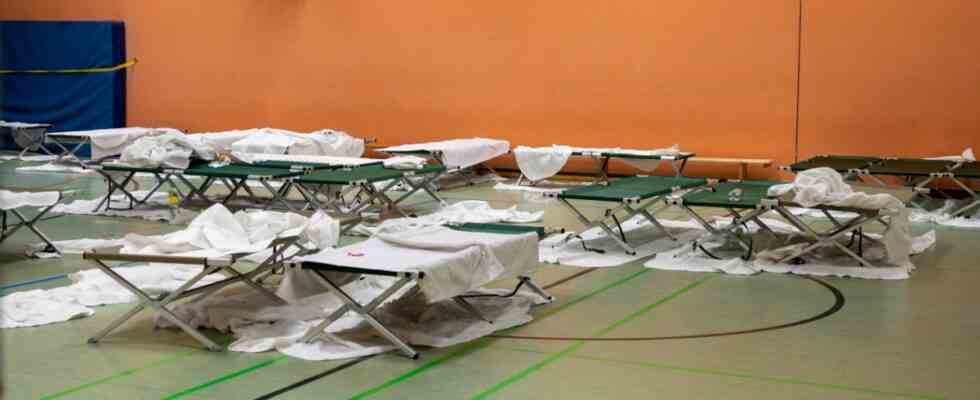On average, around 1,700 refugees from the Ukraine arrive in Munich every day. Since the start of recording on March 9th, there have been almost 14,000 people. How many of them travel on cannot be said. A total of eight emergency shelters with 4,112 beds have been set up by civil protection, reported the head of the city’s crisis management team, Wolfgang Schäuble, to the city council’s social committee. 4,000 private quarters are occupied, another 7,000 are still available. “We’ll have to see if that lasts,” said Schäuble.
In contrast to asylum seekers, who are transferred according to the Königstein key, the refugees can only be distributed to districts in Upper Bavaria and Swabia on a voluntary basis. So far, 700 refugees have moved to quarters outside of Munich in three days, “we hope to get close to 500 a day,” said Schäuble. He suggested redirecting the trains with refugees from Poland to other federal states.
With a view to the increasing number of refugees, social affairs officer Dorothee Schiwy (SPD) warned that “the metropolitan areas cannot be the main contact point for accommodation”. Schiwy demanded that the structurally weak areas should be included to a greater extent and the distribution regulated accordingly.
Munich has already housed 12,000 refugees from Syria and other countries, “we can’t also house 17,000 refugees from Ukraine.” According to the existing regulations, Munich would have to create quarters for that many additional people if a million people came from the Ukraine to the Federal Republic.
By Friday afternoon, March 4th, it had been regulated that the distribution and accommodation had to be carried out exclusively by the government of Upper Bavaria. She then announced around 5 p.m. that admission was no longer possible in the so-called anchor center, Schiwy explained.
As a result, the Luisengymnasium was taken over as accommodation for a week, and the Hotel Regent was rented within five working days and set up as a contact point. The care of the people according to the Asylum Seekers Benefits Act was simply not affordable from the start: “We used to have 50 applications a week, now we process 1000 a day.”
Despite the shortened application procedure, the law does not provide for an online application, “but a simplified face-to-face check of income and assets”. Tents, additional toilets, catering and medical service should make waiting in front of the office on Werinherstraße easier, and applications should also be processed directly in the accommodation.
There was a lot of praise for the efforts of the administration across the parliamentary groups. “Our role is to provide support with resources, the management of the crisis must not fail because of money,” said SPD/Volt parliamentary group leader Anne Hübner. “We must now do everything in our power to avert an imminent humanitarian crisis,” affirmed Clara Nitsche (Green/Pink List).
It’s about an “overall package that will bring our urban society closer together,” said Alexandra Gaßmann (CSU). The Social Committee then decided unanimously to strengthen the network of organizations such as Caritas, Diakonie, Munich Volunteers and Gorod with additional grants. 756,000 euros were made available for German courses, and there is also additional money for social care for refugees.

